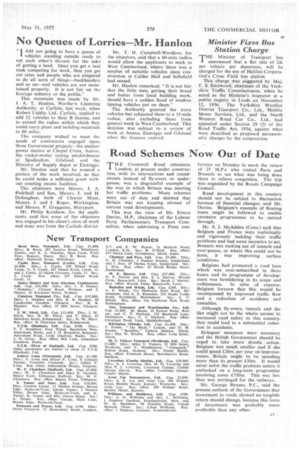Road Schemes Now Out of Date
Page 39

If you've noticed an error in this article please click here to report it so we can fix it.
TH E Cromwell Road extension, London, at present under construction, with its intersections and roundabouts instead of fly-overs or underpasses, was a disgraceful example of the way in which Britain was meeting her traffic problems. Many schemes were out of date and showed that Britain was not keeping abreast of current road developments.
This was the view of Mr. Ernest Davies. M.P., chairman of the Labour Party Parliamentary Transport Committee, when addressing a Press con ference on Monday to mark the return of 25 M.P.s who visited Paris and Brussels to see what was being done there to relieve congestion. The trip was organized by the Roads Campaign Council.
Road development in this country should not be subject to fluctuation because of financial changes, said Mr. Davies. Belgium's example of floating loans might be followed to enable extensive programmes to be carried through.
Mr. S. J. McAdden (Cons.) said that Belgium and France were realistically and vigorously tackling their traffic problems and had some incentive to act. Brussels was making use of tunnels and over-passes, or where this could not be done, it was improving surface conditions.
Belgium had promoted a road loan which was over-subscribed in three hours and its programme of development was bewildering in its scope and ruthlessness. In spite of expense, Belgium foresaw that this would be recompensed by improved traffic flow and a reduction of accidents and casualties.
Although fly-overs, tunnels and the like might not be thc whole answer to increased road safety in this country, they could lead to a substantial reduction in accidents.
Stringent measures were necessary and the British Government should be urged to take more drastic action. Belgium was much smaller and if she could spend £20m. per year on improvements, Britain ought to be spending more than its present £30m. It would never solve the traffic problem unless it embarked on a long-term programme involving some £750m. This was less than was envisaged for the railways.
Mr. George Strauss, P.C., said the present outlook of the Government that investment in roads showed no tangible return should change, because this form of investment was probably more profitable than any other.




































































































